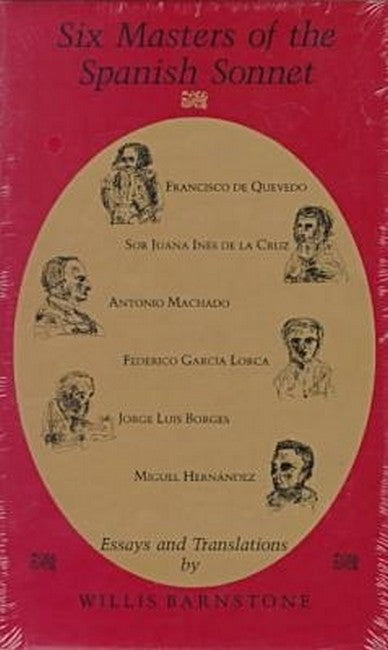WillisBarnstone is a distinguished professor of comparative literature, Spanish and West European studies, and East Asian languages and cultures at Indiana University. Twice nominated for the Pulitzer Prize in poetry, his memoir of his apprenticeship as a poet-Sunday Morning in Fascist Spain-is available from Southern Illinois University Press.
Request Academic Copy
Please copy the ISBN for submitting review copy form
Description
"Willis Barnstone has for decades been known as perhaps America's most gifted translator of Spanish poetry. A splendid poet himself, Barnstone has always been commended for the empathy, accuracy, and musicality of his translations. Yet Six Masters of the Spanish Sonnet is his most remarkable translation thus far; it is, in fact, more an act of wizardry than of translation. Barnstone not only offers compact but comprehensive essays on each of his six chosen masters but also over one hundred bedazzling translations-all strictly rhymed and metered, and yet amazingly free of the awkwardness we have come to expect from such attempts at equivalent renderings. Here, perhaps for the first time, English-speaking readers can appreciate something of the mastery of poetic form that characterizes the work of these great Spanish-language poets: the Catullan vigor and bawdiness of Quevedo, the austere gravities of Machado's late sonnets, the implosive surrealist fury of Hernandez, and the wry eloquence of Borges, who in a poem on the dying Heine refers to the 'exquisite melodies / Whose instrument he was.' Willis Barnstone allows us to hear the exquisite melodies of each of his masters. We can be grateful that he has served them so well."-David Wojahn, author of Mystery Train, his most recent collection of poetry, and coeditor of A Profile of Twentieth-Century Poetry The translations are pure magic: texture, diction, rhyme, and meter conspire to captivate the English reader as the Spanish originals have enchanted their primary audiences."-Choice "Willis Barnstone has given us a sustained meditation on the nature of poetry and on the scope of that quarrelsome and elegant fourteen-line form."-Preston Merchant, The Formalist

